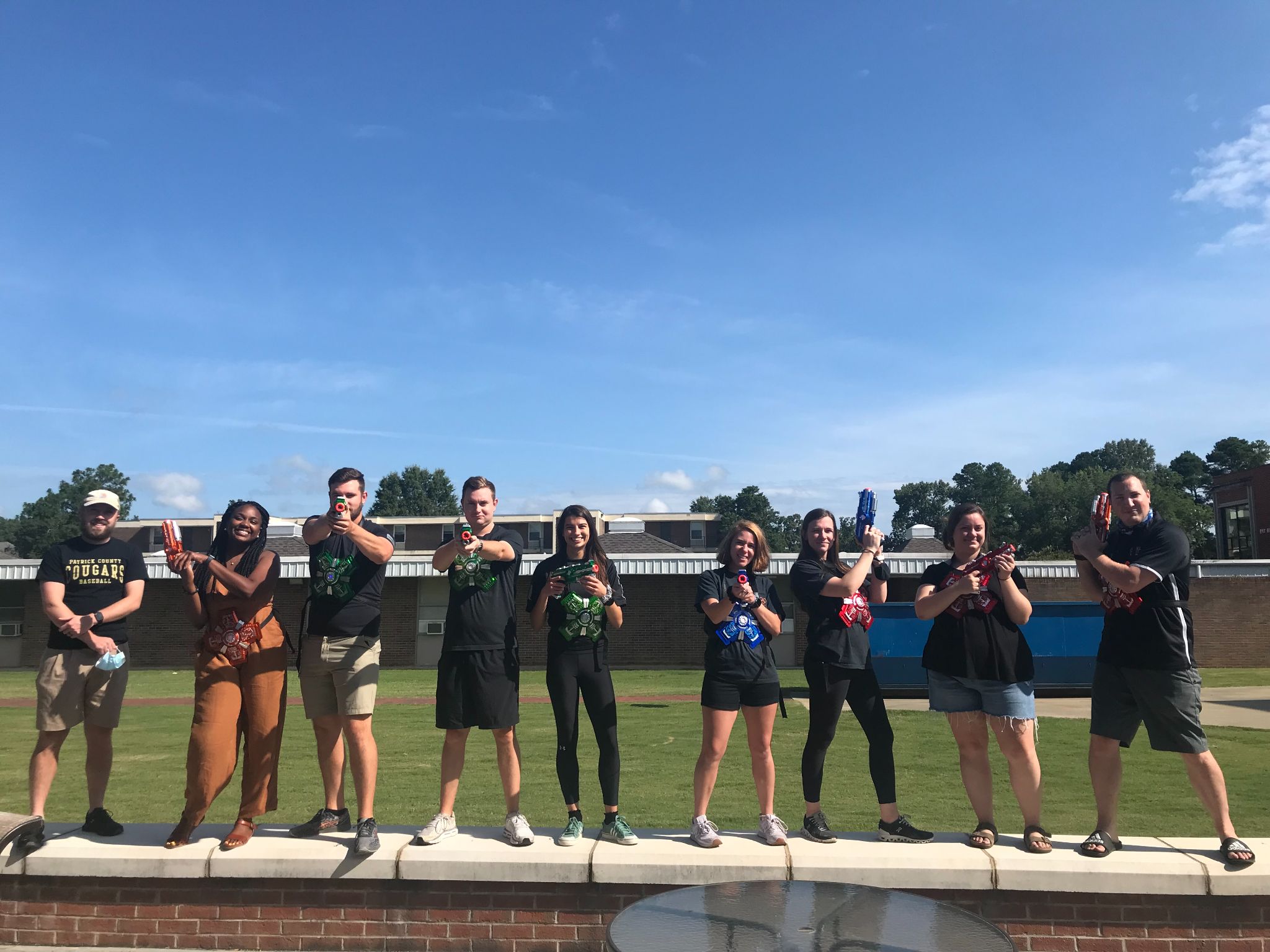
(Me, Abby Hall)
When considering and/or attending pharmacy school, the expenses of school and living can begin to add up. As an undergraduate alumni of NC State living in Raleigh, I knew I needed to be close to campus when I began pharmacy school to reduce travel time and increase my chance of involvement. As a student in the dual public health/pharmacy program, a classmate of mine told me about the resident director (RD) position at Campbell. Fast forward to today and I am living on campus as an RD and beginning my second year of pharmacy school.
The Resident Director (RD) position at Campbell University through the Residence Life and Housing Office (commonly referred to as Res Life) is considered a full time paid position that anyone pursuing a graduate degree at Campbell can hold. Logistically, the position consists of overseeing an on campus residence hall or apartment complex, which includes supervising a staff of community assistants (CAs), planning programs for your community and serving on duty through answering a duty phone at any time of day. You are also on a team with 10 RDs and multiple professional staff that you meet with on a biweekly basis. There are additional leadership opportunities that become available as an RD, including serving on different committees, such as the Training and Development committee where I serve. Financially, this position assists in the financial burden of pharmacy school greatly, by providing free housing and utilities in an on-campus apartment, an on-campus meal plan, a monthly paycheck and the option to appeal to HR for a percentage of my tuition to be covered. The financial benefit of this position matches the social/service benefit of connections with on-campus students and staff, a support system through my RD team and the chance to have an impact on undergraduate students.

(My husband Matthew & I outside our campus apartment on move-in day)
When I tell people I work as a RD while in pharmacy school, I get many weird looks and interesting questions. The main question I get is: “How does working for Res Life relate to being a pharmacist?” For me, the three main areas I have seen my job roll over into the role of a pharmacist include the interprofessional connections, emergency preparedness and response and supervision skills.

(My amazing RD team this year)
My team of RDs represents multiple graduate programs, including public health, pharmacy, physical therapy, business and divinity. Through working with my RD team, I can see first hand how these different degrees all play a role in the success of our team, our CAs and students. Each RD brings different strengths to the table and fresh ideas related to their respective degrees they are pursuing. The combination of personalities, interests and backgrounds on our RD team this year I believe makes us a strong team that creates unique solutions to problems and ideas for the department. As a pharmacist, the stage may be different but the concept will be the same as I prepare to work with physicians, physician assistants, social workers and physical therapists who each see the patient differently but with the same goal to provide healing.
One of the main responsibilities of an RD is serving on duty by answering a duty phone. Most calls on the phone come from CAs, Campus Safety or other campus partners. During RD training, we are trained to handle a variety of situations, including conflict resolution, fire safety, Title IX issues and suicide ideation. These situations need to be handled objectively but also our training provides us the ability to trust our gut with any situation I approach. With the pandemic, this also gave me a unique role as a pharmacy student and Resident Director to have conversations with my residents regarding COVID spread, safety and vaccination importance and safety. We as RDs have delivered meals in the pouring, freezing rain and the hot, humid weather to assure residents in quarantine are fed. I give all these examples to show the variety of cases I have to be prepared for, similar to healthcare providers. And no matter how much training I have, there will always be a new situation I will have to handle where I trust my training and myself to handle it.

(Two of my best friends/RD pals)
Finally, the RD job is teaching me to be a successful supervisor. To take a quote from my friend and fellow coworker Kayla Garris, our role as RDs is “Leading the Leaders” This means giving my staff the tools they need to succeed as well as the space to do so, so they can be developed as leaders as well. I mentioned being a part of the Training and Development committee within the Res Life office, and this has been one of my favorite parts of my job. It allows me to play to my strengths as well as impact our CAs so they have more than just a job. RDs are not just managing but they are developing their CAs to be the best they can be. Our Training and Development committee has taught our CAs various skills surrounding professionalism, mental health awareness, personality differences and diversity/inclusion. I hope as a pharmacist/supervisor, I can lead a similar role with who I work with whether that is in a hospital setting, student services or outside the county.
My job requires me to be highly organized and manage my time well to ensure I also excel in my pharmacy classes. There are many hard days where I go from 6am to 12am to complete my classes, RD responsibilities and giving myself time. My days are full, but they are filled with not just the negatives, but the positives like the relationships I form with my staff, watching my staff excel with the advice I try to provide, learning new skills myself and watching residents become involved and thrive on campus because of the work Residence Life does. This job and department requires us to be servant-leaders, where we put our staff and residents first and do what we can to help them be successful. In a way, this is how I hope to operate as a future pharmacist, where I always keep my patients in mind in everything I do. This embodies one of my favorite ideas of leaving people and places better than I found them. So while it’s seems like a strange combination, my job in Residence Life and my future career in pharmacy do go hand-in-hand, showing that my pharm (acy) life and residence life really is the best life!

(My FMC staff for this year)











